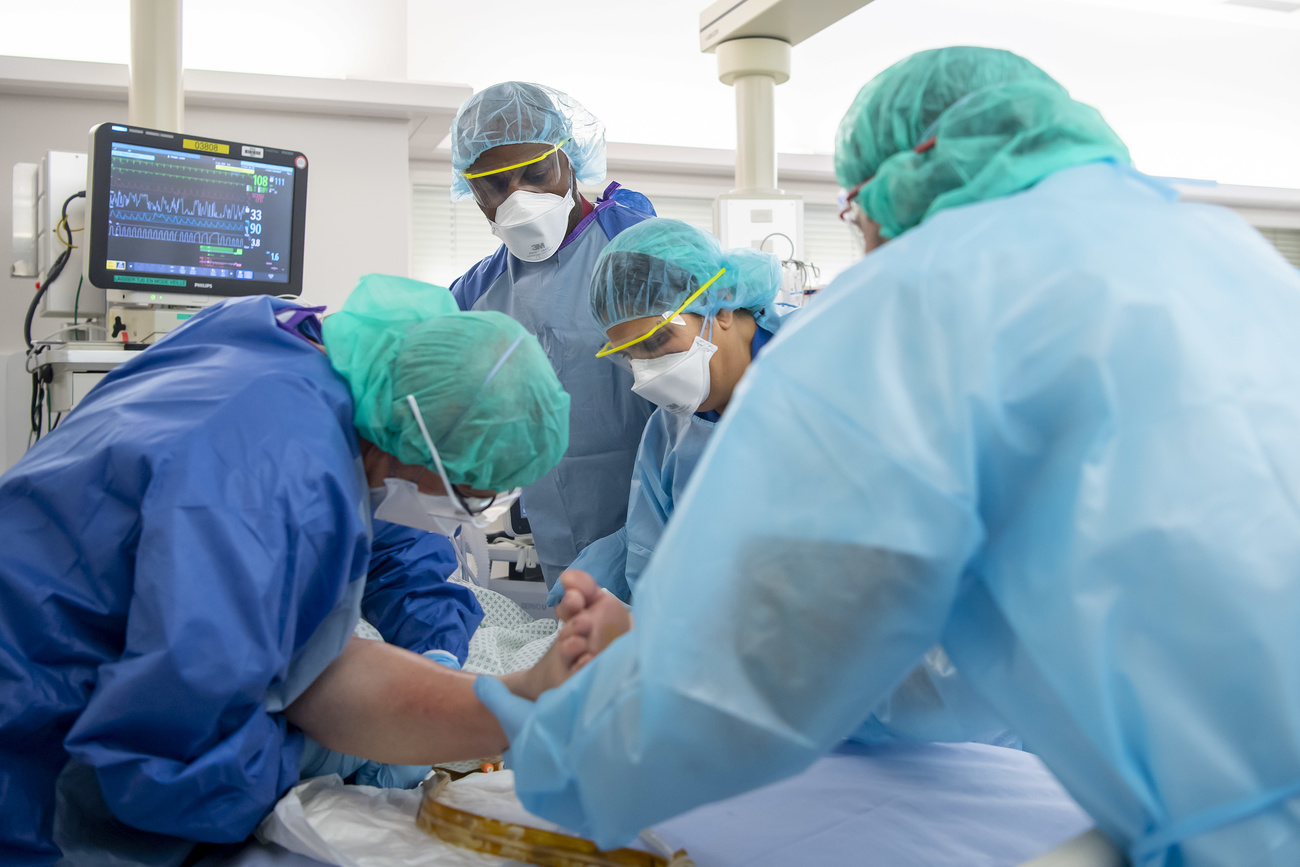
Covid-19 science taskforce rejects accusations of alarmism

The Covid-19 science taskforce has said it stands by estimates that Switzerland’s intensive care units could reach capacity if new Covid-19 infections don’t drop dramatically in the next few weeks.
In an interviewExternal link in the Sonntagszeitung, Sebastian Bonhoeffer, a member of the National Covid-19 Science Taskforce, said that the forecasts were not alarmist overestimates. “If you add 100 or 200 beds to the bed capacity, it will only take a few days longer for the hospitals to reach their limits,” he said.
On October 23, Martin Ackermann, who heads the Covid-19 science taskforce, said they estimated that the capacity limit in intensive care in hospitals would be reached between end of October and November 9 if the situation didn’t improve. At the time, Switzerland reported 6,634 new cases.
Bonhoeffer explains that “the forecasts of October 23 were based on the assumption that non-emergency interventions would not be postponed”. As some hospitals have rescheduled procedures, the doubling time slowed from 7 to 8.6 days. In response to changes, the taskforce adjusted the forecasts and declared last Friday that the upper limit of 1,400 beds would be reached by November 13 to 19 if nothing is done to bring down the cases.
New infections have surged in Switzerland in the last two weeks reaching over 10,000 a couple days last week. On Saturday, statistics compiled by the World Health Organisation revealed that six cantons in Switzerland are among the top 12 regions for Covid-19 infections in Europe. Geneva tops the list with 13,965 new infections in the last 14 days.
On Thursday, some hard-hit hospitals started transferring some intensive care coronavirus patients from French-speaking part of the country to German-speaking regions that have more space. The government has also deployed the army to provide support to hospital staff in Geneva among other cantons.
The federal government put in place stricter measures in late October to deal with the rising cases but has resisted some form of lockdown despite calls from some epidemiologists in the country. Some cantons including Geneva, Vaud, Valais and Jura have opted for semi-confinement in which bars, restaurants and non-essential shops are closed.
Last weekend, the Health minister already warned that large family gatherings and parties will likely be difficult over the holidays. “I don’t know if we can save Christmas,” Berset told Le Matin DimancheExternal link. “We have to live with this uncertainty.”
Coronavirus protests in Basel
Over the weekend, several hundred people gathered in Basel to protest against the Covid-19 measures. Political protests are allowed provided people wear masks. Keystone-SDA reported that very few protestors were wearing masks and that around 80 people were questioned by authorities.
One of the protestors claimed to say that the country was turning into a “health dictatorship” while another said that this “masked history” was a crime against humanity.

In compliance with the JTI standards
More: SWI swissinfo.ch certified by the Journalism Trust Initiative





























You can find an overview of ongoing debates with our journalists here . Please join us!
If you want to start a conversation about a topic raised in this article or want to report factual errors, email us at english@swissinfo.ch.